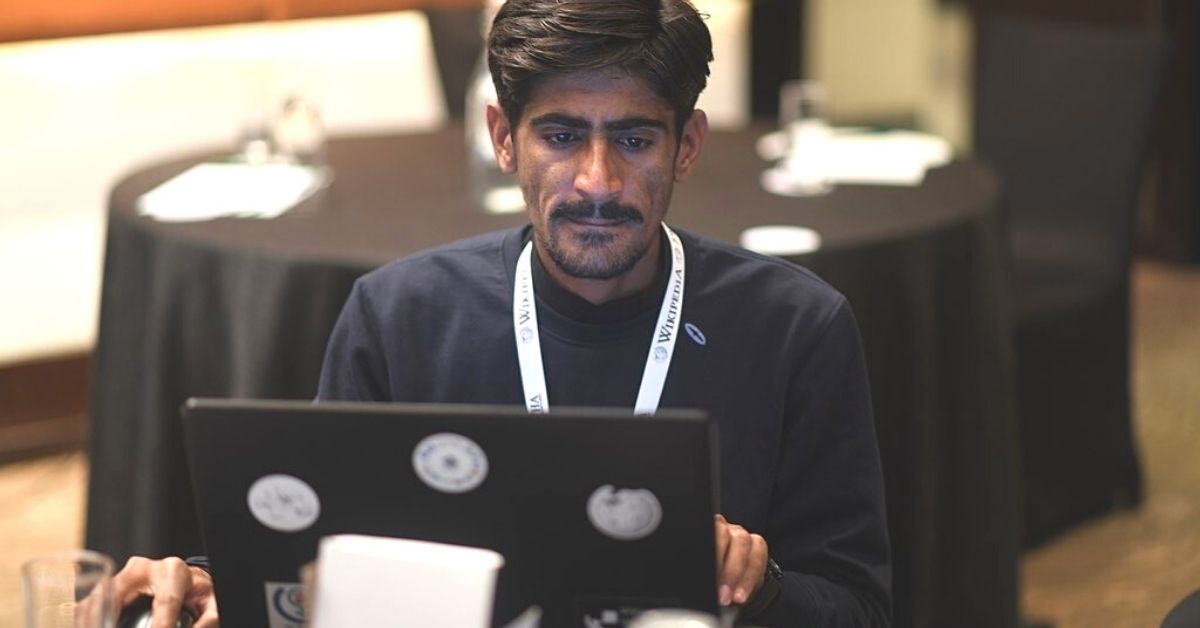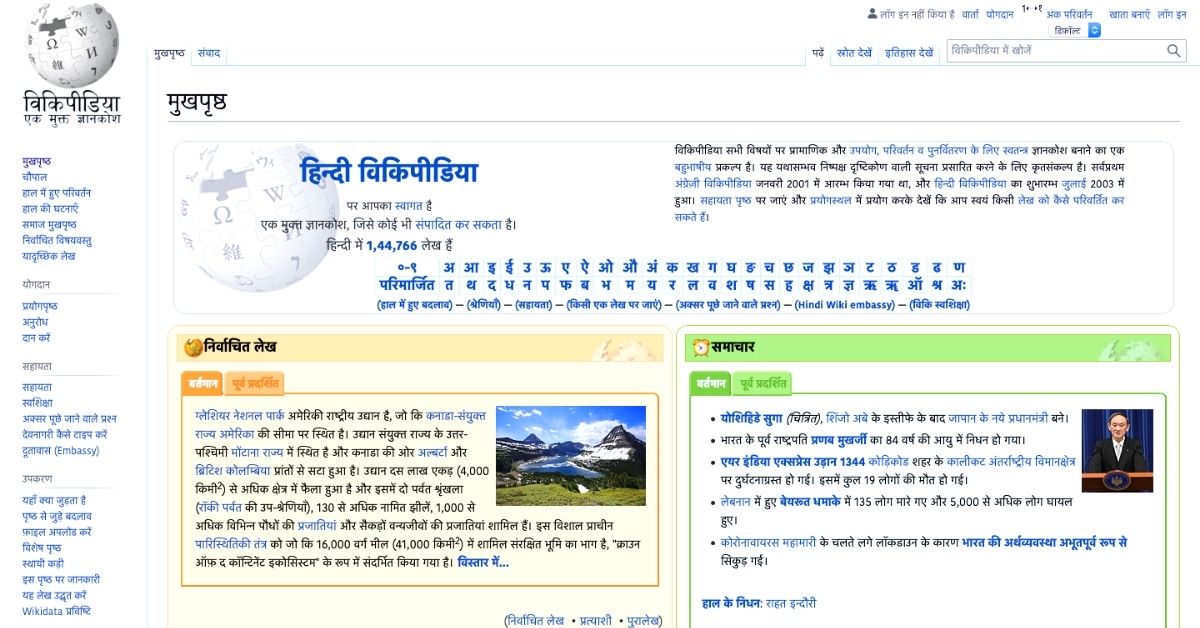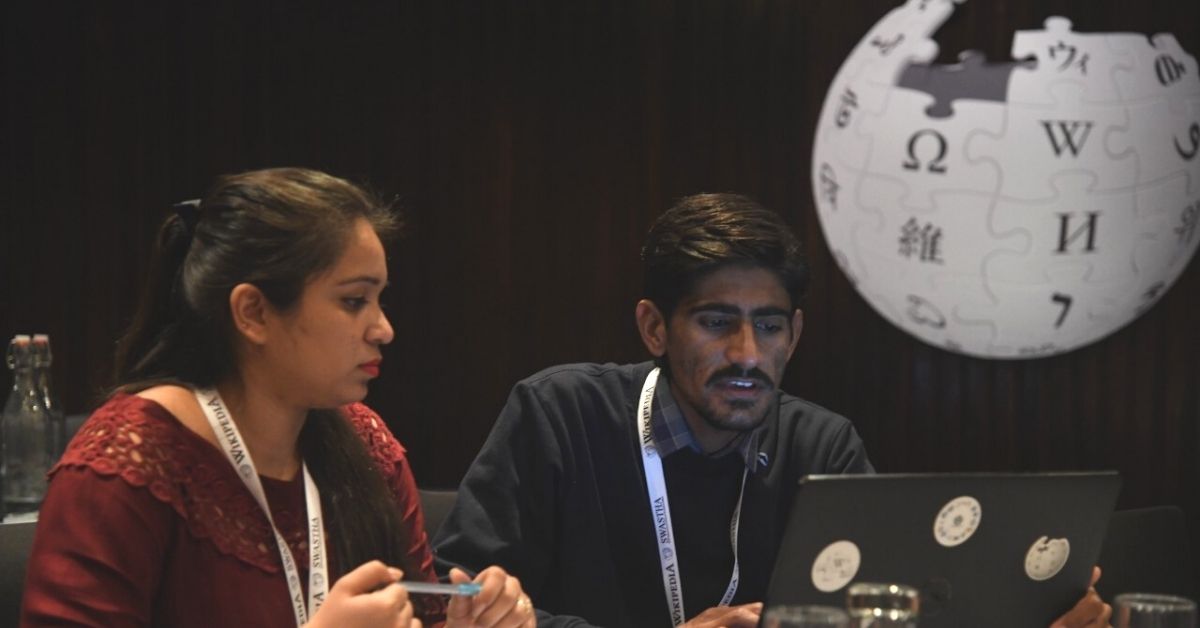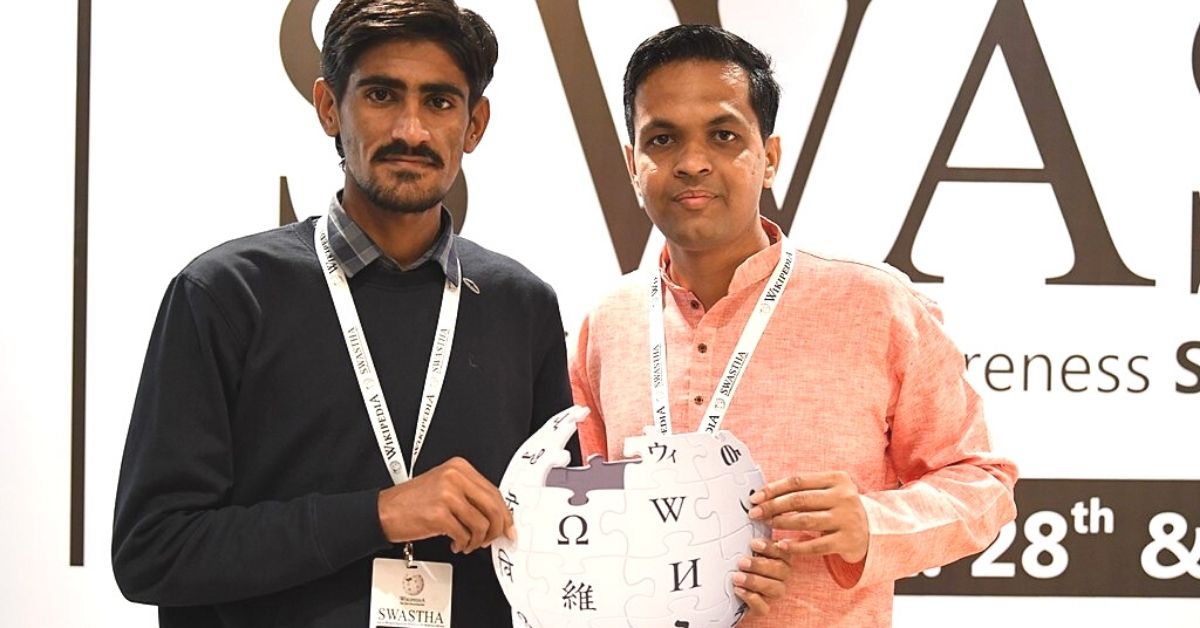How A 22-YO Carpenter Became a Hindi Wikipedia Reviewer, With Over 57,000 Edits
Jodhpur-based Raju Jangid is one of the 11 contributors of Hindi Wikipedia, wherein he has helped millions gain information about COVID-19, history, sports, and geography, among many other such topics, in the language. He did all this while juggling his carpentry job, and pursuing his education

In 2011, Raju Jangid from Jodhpur, then a student of Class VIII, searched the internet for information about Bollywood star Mithun Chakraborty, and landed on the actor’s page on Wikipedia, the largest free encyclopaedia in the world. Subsequently, he found that all his other searches pulled out a Wikipedia page.
“The site had information about any topic I searched. My interest increased, and I kept browsing the website to find whatever information was available on it,” he recalls.
Over the next few months, Raju looked up Wikipedia’s history, and learned more about page creators, contributors, editors, and the organisation at large. Owing to his poor financial condition, the village boy from Thadiya had no means to get a smartphone, and used a keypad handset for all his research.
“There are discussions among members on the website, and I started reaching out to community members to get answers to any queries I had. I learned that the platform is a non-profit, and the contributors do not get paid. Additionally, anyone can write or edit to the content on the pages,” he says.
While as simple as this is in theory, Raju struggled to get his articles, written from his primitive handset, approved. But now, he is a reviewer for Hindi Wikipedia, having contributed to 1,880 articles and edited over 57,000 of them in the language.
A rough start

Raju, now 22 years old, says his journey has been difficult, both on the personal as well as professional front. He had to quit his education to support his farmer parents, who had about 7.5 acres of land. “The agricultural activities were barely helping us survive, and my father suggested I start earning. I quit school after Class X, and began working as a carpenter in the village, earning Rs 7,000 a month,” he says.
Raju’s interest in exploring Wikipedia carried on simultaneously, and he decided to contribute through his writing in Hindi. He started by creating a page for himself and his brother, and wrote some more information about his village. All of it disappeared the next day. With no references to support the information, the article was pulled down by the editors.
“I made repeated attempts over two years to upload the articles, but failed. Eventually, the administrator blocked me thrice in 2013 and 2014, In the process, I learned that all the articles need to be unbiased and neutral. They cannot promote or advertise a person or celebrity. Most importantly, all of them need the support of citations and references for the information,” Raju tells The Better India.
He created a new account in 2015 and decided to follow all community guidelines hereon. “I started writing information about my village and neighbouring areas. After they were approved, I wrote about cricket, as the sport interests me. Eventually, I progressed to composing articles on geography, history, and entertainment,” he adds.

But despite the ability and confidence to write, Raju faced technical hurdles. “I did not have a smartphone, so I couldn’t write any articles beyond 150-200 words. The software in the handset kept crashing, and all information would thus be deleted. I eventually bought a smartphone, but this problem continued. The new device helped me write longer articles, around 400 words, but the editing page refreshed every time I switched tabs to search for references and citations,” he adds.
Meanwhile, Raju’s salary as a carpenter increased to Rs 14,000. He would give Rs 10,000 to his parents, and the remaining would be for personal use. These earnings helped him pursue his Class XII boards. “I worked a 12-hour shift from 9 am onwards every day, and found time between work to write on the website. I would also write till late at night,” he says.
‘Reaching out to millions’

In mid-2016, Raju received an opportunity to attend a Hindi Wikipedia conference in Pune, Maharashtra. “The community members learned about technical challenges that editors face and decided to help. “Two members knew about my weak financial condition and discussed the issue with others. They suggested raising a donation campaign to provide me with a laptop and internet connection. It’s a lengthy process, as all members and seniors need to nominate and vote in favour of the hardware donation. Six months later, in December, I received both devices,” he says.
Since then, Raju has contributed lengthy articles in Hindi to Wikipedia and has progressed from being an editor to a reviewer. In 2017, Raju quit his job as a carpenter to pursue his education and make a career in writing. “While I wasn’t earning from writing on Wikipedia, I had developed an interest in it. I loved the fact that millions were accessing the information I was writing. The platform allowed me to provide readers with accurate and useful information. I was proud to be writing for one of the most accessed websites in the world. Moreover, I didn’t have to invest any money in the cause,” he adds.
Raju completed his graduation in Arts in 2018, while contributing to hundreds of articles. He also got a job with a content writing company in Jodhpur. The Wikipedia community eventually nominated him to become a reviewer. “My responsibilities have increased — they now involve fact-checking and correcting the articles, and improving their overall quality. On many occasions, there have been arguments between writers about the credibility of the information. My job involves resolving such conflicts and allowing credible information for the readers,” he tells The Better India.
Keeping Raju’s extraordinary contribution in mind, community members have nominated him to take on the responsibility of an administrator thrice. However, he hasn’t accepted the position so far. “I do not feel confident enough to take on additional responsibilities as of now, but will rethink my decision when the next opportunity arises,” he says.
A need for neutral content

Appreciating Raju’s work, Abhishek Suryawanshi, founder and director of Hindi Wikipedia, says the former’s contributions towards the language have been immense. “There are only 11 active contributors for the section in India. His work has been commendable in providing information in regional languages. Raju’s work is read by millions across India. Besides writing the articles, he has also participated in various outreach programmes to encourage more writers to contribute,” he says.
Abhishek adds that recently, Raju also contributed to SWASTHA — Special Wikipedia Awareness Scheme For Healthcare Affiliates, which provides crucial information to the internet community on COVID-19 in Hindi.
Raju says he wants more contributors to join the website. “There are thousands of pages with information the various sectors internet users want to read up on, but none of the information is available in Hindi. There’s a need for unbiased, neutral and non-controversial information, and common people like us can help provide it,” he says.
Edited by Divya Sethu
If you found our stories insightful, informative, or even just enjoyable, we invite you to consider making a voluntary payment to support the work we do at The Better India. Your contribution helps us continue producing quality content that educates, inspires, and drives positive change.
Choose one of the payment options below for your contribution-
By paying for the stories you value, you directly contribute to sustaining our efforts focused on making a difference in the world. Together, let’s ensure that impactful stories continue to be told and shared, enriching lives and communities alike.
Thank you for your support. Here are some frequently asked questions you might find helpful to know why you are contributing?


This story made me
-
97
-
121
-
89
-
167











